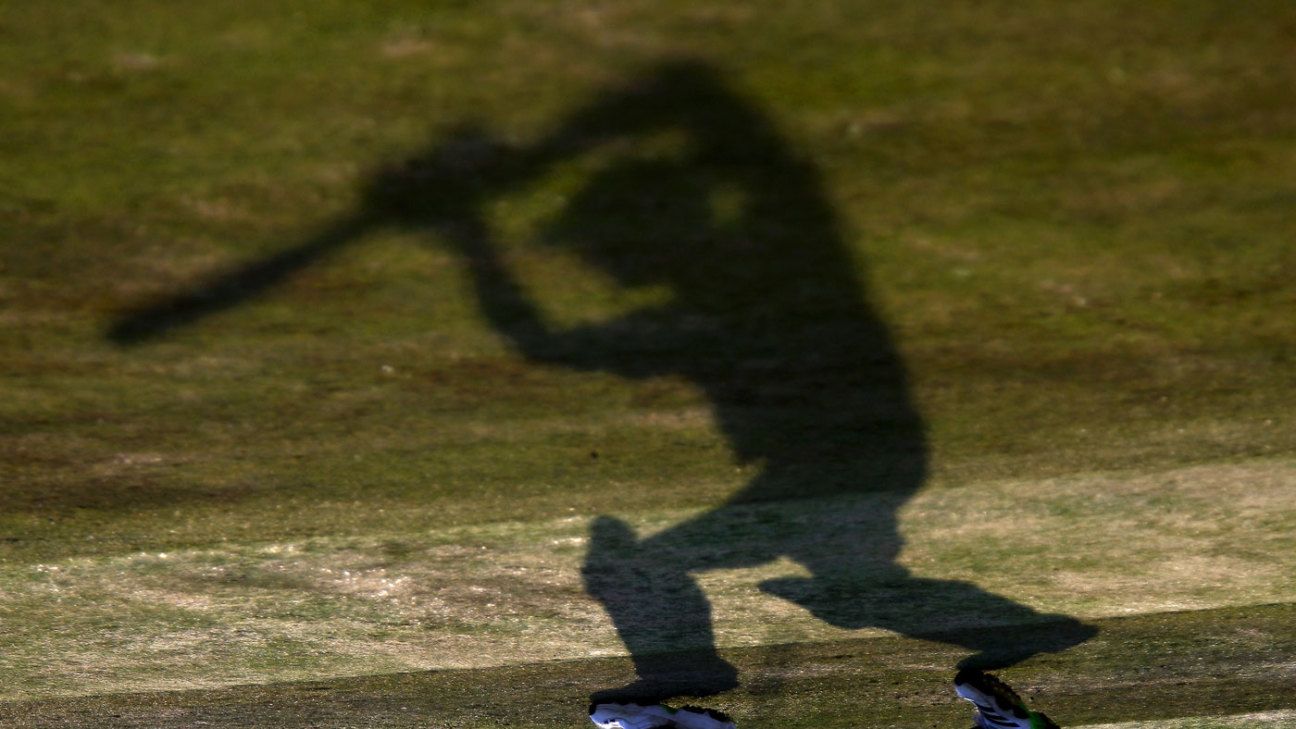
The ICC has banned Oman player Yousuf Al Balushi from all cricket for seven years after he accepted four charges of breaching the ICC Anti-Corruption Code. The charges relate to attempting to influence team members to engage in corruption during the 2019 T20 World Cup Qualifier, played in the UAE.
Balushi had been suspended last month for the same offence, and has now been formally slapped with the sanction after he "chose to admit the charges and agreed the sanction with the ICC in lieu of an Anti-Corruption Tribunal hearing," an ICC release said.
While Alex Marshall, the ICC's general manager for Integrity, called Balushi's offence "very serious", he also revealed that the ban could have been "significantly longer" had Balushi not cooperated with the investigation and admitted his guilt.
"This is a very serious offence where a player attempted but failed to get a team mate to engage in corrupt activity in high profile games and this is reflected in the severity of the sentence," Marshall said in the ICC statement. "Without Mr Balushi's admission of guilt and full cooperation throughout our investigation, the ban could have been significantly longer. The player has also indicated that he is willing to contribute to future integrity education programmes on our behalf to help younger players learn from his mistakes."
The ACU had charged Al Balushi for breaching its code on the following four counts:
Article 2.1.1: Being party to an agreement or effort to fix or contrive in any way the result, progress, conduct or any other aspect of matches in the ICC World T20 Qualifiers 2019.
Article 2.1.4: Attempting to solicit, induce, entice, persuade, encourage or intentionally facilitate a Participant to breach Article 2.1.
Article 2.4.4: Failing to report the approaches or invitations that you received from three different individuals to be a party to an agreement or effort to fix matches in the ICC World T20 Qualifiers 2019.
Article 2.4.7: Obstructing or delaying an investigation carried out by the ACU in relation to possible Corrupt Conduct under the Code, including by concealing or tampering with information that may be relevant to that investigation and/or that may be evidence of or lead to the discovery of evidence of Corrupt Conduct under the Code.
The ICC's investigation found that Balushi had been approached in August 2019 by someone he knew from playing in an unsanctioned Arabian Carnival League match in Bahrain. The individual, referred to as Mr X by the ICC, asked Balushi if they could "do some work together", asking for Balushi's help to fix matches in the 2019 T20 World Cup Qualifiers.
Subsequently, Mr X introduced Balushi to two other men (Mr Y and Mr Z) who told him he needed to get a particular Oman player on board. The fix would involve this player getting out for less than a pre-agreed amount of runs. To show that the fix was on, the player would have to use an orange or black coloured grip on his bat, and he would then have to act on a signal from Mr Y and Mr Z, who would be in the stands.
Balushi messaged the player and put the offer to him, but the approach was immediately rejected and reported to the ICC's anti-corruption unit. Balushi learned of the approach being reported, and on being told that the ACU would interview him and also look at his phone messages, he deleted the messages. Balushi did not report the approaches made to him and accepted he had deleted incriminating messages on his phone, which then led to the punishment.















 Phone: (800) 737. 6040
Phone: (800) 737. 6040 Fax: (800) 825 5558
Fax: (800) 825 5558 Website:
Website:  Email:
Email: 






